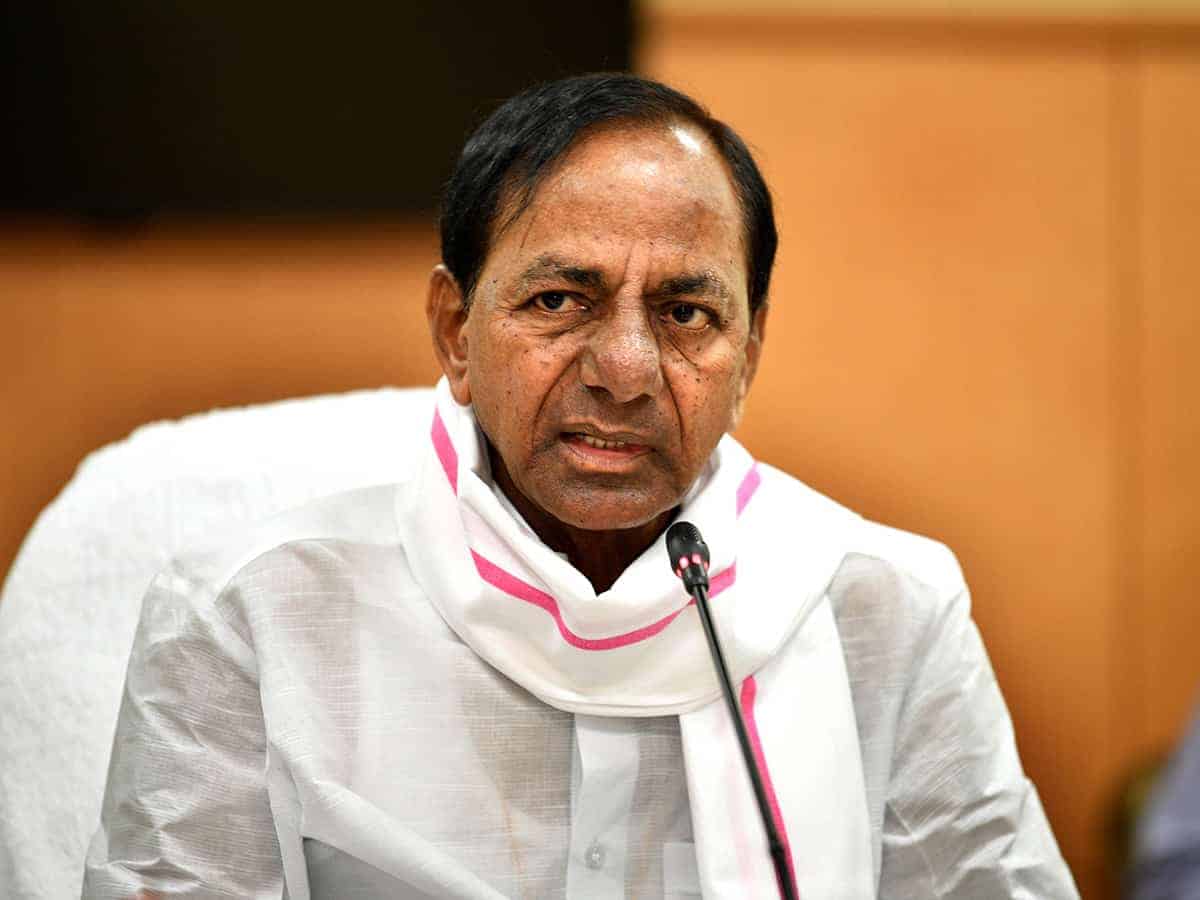
On April 24, a confident Chief Minister K Chandrasekhar Rao announced that all the people in the State, irrespective of age, will be administered Covid-19 vaccine free of cost.
The welcome move translated into an expenditure of Rs 2500 crore to the Stare exchequer. Immediate question raised was how will the government find the resources?
But, the CM said emphatically, “Nothing is more important than the precious lives of the people.” He even went a step ahead and said even those who migrated to the State and were working in different sectors would get free vaccination.
Exactly a month later on May 24, KCR Government announced that everyone above 18 years can get the jab in private hospitals as well as workplaces. This is in line with the Centre’s guidelines, which allow Institutes/companies/gated communities to procure directly from vaccine makers and administer.
A week earlier on May 17, the Telangana Government halted the drive to even administer the vaccine to only those needing the second dose citing no vaccines. By end of April itself, the State was complaining that it was running short of supplies.
How this dramatic change
Interestingly, in April the two manufacturers of the vaccines Covaxin and Covishield, Bharat Biotech and Serum Institute of India ( SII), worked out a differential price mechanism with the Centre and states as well as private hospitals. Covishield was priced at Rs 400 per dose to the states and Rs 600 to private hospitals. Covaxin was priced at Rs 600 for states and Rs 1200 for private hospitals.
Despite criticism and even the SC questioning the rationale of the differential price mechanism, the companies got the backing of the Centre. The two manufacturers also bagged substantial orders to increase their capacities and supply in the coming few months to meet shortages and also accelerate vaccination drive across the country.
The Telangana Situation
Meanwhile, in the second week of May, the Telangana government allowed private hospitals to initially give only the second dose at the prices determined by the companies. Nearly 45 private hospitals have been given the nod.
After, suspending its own drive, the government has resumed its own vaccination drive from May 26. Expectedly, huge crowds of hopefuls are thronging the centres.
By opening up vaccination to the private sector, especially at a minimum price fixed, the government has definitely gone back on its promise of free vaccines for all, at least for now. Unless, the KCR government has plans to announce reimbursement sometime in the future.
All these changes are being attributed to the sudden spike in demand and short supply of vaccines triggered by the second wave. But, then what stops the government to take control and run the programme in a smooth way by getting the private sector and funding it totally, question experts. Instead, by throwing it open, partially now, to perhaps allow market forces later, when more vaccines are available can be a challenging scenario.
The Telangana Government also announced that it will float international tenders to import vaccines. A move, some other states too had resorted to. However, Pfizer & Moderna made it clear that they would like to deal only with the Union government.
The net result is the anxiety for those awaiting the second dose, the long wait for those between 18-44 and the rush to identified private hospitals, which had limited quantities and administered at a price. To top these worries, the State went into a lockdown from May 12.
As the situation moved from shortage to stoppage, sporadic reports of sale of vaccine at high cost, the Government took control and insisted on registering through the COWIN App to become eligible for a jab in both government Centres and private hospitals.
What happened to Hyderabad, the Vaccine Hub?
However, the capacities of these companies were not very high. Moreover, with neither adequate funding nor orders from the Centre, they woefully fell short, when the demand spiraled from April.
Meanwhile, companies like Dr Reddy’s tied up with Russia to import and later manufacture Sputnik V vaccine. With demand being high, Hetero Biopharma, Gland Pharma, Virchow Biotech too forged contract manufacturing arrangements.
With all these companies making investments to create vaccine manufacture units, they will necessarily quote a price for supplying to the government or private hospitals. For example, Dr Reddy’s has quoted Rs 950 plus GST per jab for the Sputnik V it has imported.
Once, the Telangana government procures the necessary quantities of the vaccine will able to bear the cost and administer free as promised. The State Minister for IT and Industries, K T Rama Rao is quoted in the media saying that once adequate doses are made available the State government has the capability to administer one million doses per day and cover the entire population in a month.
With no clear policy on vaccine import, differential pricing, little assurance of adequate supplies from the manufacturers for at least a month, there is no respite to the problems for the common man.
According to the NITI Aayog, the Centre expects to procure 2.16 billion doses of the vaccine between August and December. These include the 3 available now and another 5 to be either imported or contract manufactured in India after approvals.
Somasekhar Mulugu, former Associate Editor & Chief of Bureau of The Hindu BusinessLine, is a well-known political, business and science writer and analyst based in Hyderabad

